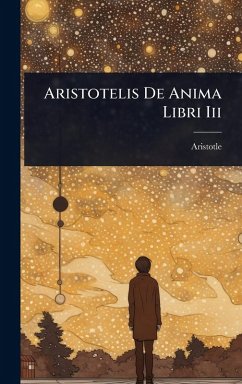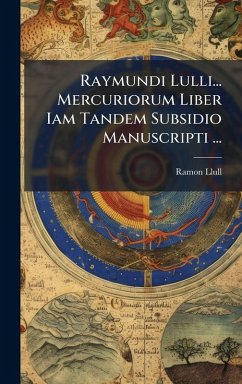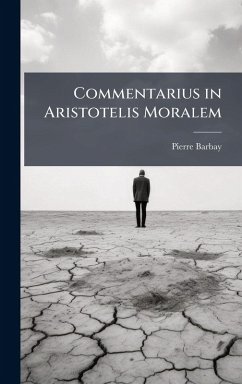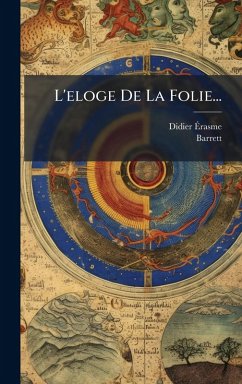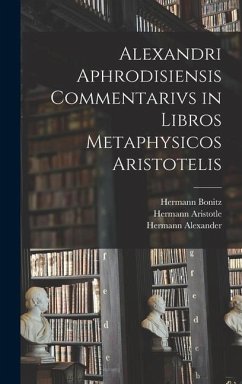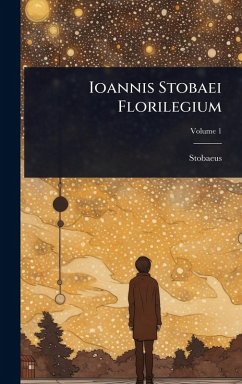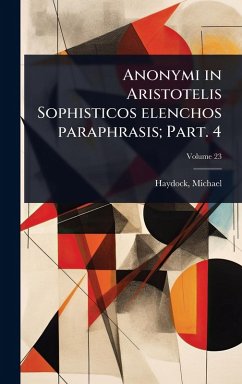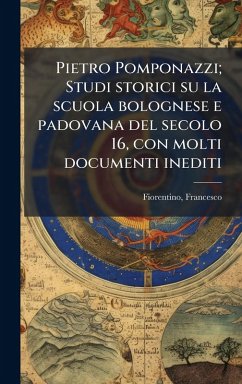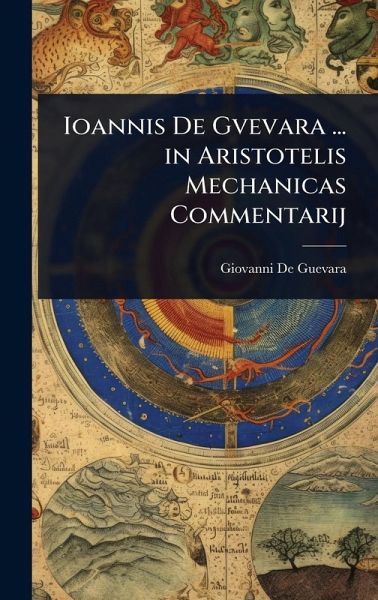
Ioannis De Gvevara ... in Aristotelis Mechanicas Commentarij
Versandkostenfrei!
Versandfertig in über 4 Wochen
32,99 €
inkl. MwSt.
Weitere Ausgaben:

PAYBACK Punkte
16 °P sammeln!
Ioannis De Gvevara ... in Aristotelis Mechanicas Commentarij is a Latin commentary on Aristotle's work on mechanics, authored by Giovanni De Guevara and published in 1627. This volume offers insights into the interpretation and understanding of Aristotelian physics and engineering principles during the early 17th century. It provides valuable historical context for the development of mechanics as a science and offers a glimpse into the intellectual landscape of the Renaissance. Guevaraâ(TM)s work illuminates the ongoing engagement with classical knowledge and its adaptation in the evolving sc...
Ioannis De Gvevara ... in Aristotelis Mechanicas Commentarij is a Latin commentary on Aristotle's work on mechanics, authored by Giovanni De Guevara and published in 1627. This volume offers insights into the interpretation and understanding of Aristotelian physics and engineering principles during the early 17th century. It provides valuable historical context for the development of mechanics as a science and offers a glimpse into the intellectual landscape of the Renaissance. Guevaraâ(TM)s work illuminates the ongoing engagement with classical knowledge and its adaptation in the evolving scientific discourse of the period. For scholars of philosophy, science, and the history of ideas, this commentary provides a rich resource for understanding the transmission and transformation of ancient knowledge. This work has been selected by scholars as being culturally important, and is part of the knowledge base of civilization as we know it. This work was reproduced from the original artifact, and remains as true to the original work as possible. Therefore, you will see the original copyright references, library stamps (as most of these works have been housed in our most important libraries around the world), and other notations in the work. This work is in the public domain in the United States of America, and possibly other nations. Within the United States, you may freely copy and distribute this work, as no entity (individual or corporate) has a copyright on the body of the work. As a reproduction of a historical artifact, this work may contain missing or blurred pages, poor pictures, errant marks, etc. Scholars believe, and we concur, that this work is important enough to be preserved, reproduced, and made generally available to the public. We appreciate your support of the preservation process, and thank you for being an important part of keeping this knowledge alive and relevant.



